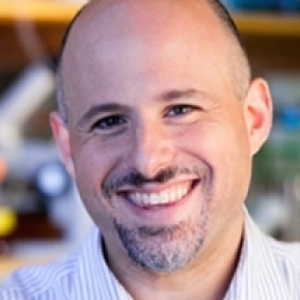This winter, for our seasonal series entitled “Professorship and Mentorship,” PCURs interview a professor from their home department. In these interviews, professors shed light on the role that mentorship has played in their academic trajectory, including their previous experiences as undergraduate and graduate students as well as their current involvement with mentorship as independent work advisers for current Princeton undergraduates. Here, Nanako shares her interview.
~~~~~
As one can see from the many PCUR posts on Junior Papers

and Senior Theses, independent work is a huge part of the junior and senior experience here at Princeton. However, everyone has different views on why this process is important, and different departments have different requirements. For this Winter Seasonal Series, I decided to interview Professor Gitai, who I met when I took MOL214: Introduction to Molecular and Cellular Biology in the fall of my first year at Princeton. Read on to learn more about the thesis writing process for concentrators in molecular biology, and how to make sure you get the most out of this process!
What opened your eyes to research?
When I was an undergrad, I was lucky enough to have the opportunity to work in a lab for my work study. That was my first exposure to research, and I kind of fell in love.
There was this one time where I asked someone in my lab how something worked, and they replied that nobody knew how it worked. I was kind of shocked. When they said that I could be the person to discover how it worked, I was hooked.
When I made my first discovery, it was incredible because it was a minor discovery, but I was also the first one in the world to know how this really minor thing works.
What part of the undergraduate research experience for thesis production most accurately mirrors your research process?
The undergraduate research experience is identical to the research I do. That’s the great thing about undergrad research. When you start out, it’s hard to make decisions about what to do and when, but as you spend more time, you gain more autonomy in the lab. I would say that the thesis process is a very accurate representation of the actual research process.
No research project is ever truly complete, and there’s always more to do. I would say that for an undergrad, the amount that you manage to get done is less because of the time constraints.
In terms of the whole thesis writing process, one big difference between thesis writing and science writing is that in science writing we really value brevity. But at Princeton, especially when it comes to the thesis, there tends to be the belief that “more is better.”
But overall, I think that the university does a really good job of really making sure that the students who graduate get a really good picture of what original basic research is all about.
How can students make the most out of the independent work process?
There’s sort of two levels that I would encourage students to explore.
First, see the process as a way of learning and understanding how to do research. It’s an opportunity to think hard and to observe how science is done. See it as a way to help you decide what sort of thing you like to do. I really hope that students try research with an open mind, even if they’ve already decided that they’re going to medical school or consulting.
Second, even if they don’t end up going into academia, through the process of independent work, they’re learning how to think critically. I hope that they can retain some of this and apply it to different parts of their life. If they read about a new discovery in the newspaper, I hope that they think back to their experiences and think critically about whether they should accept that new discovery as fact.
What advice do you have for people just entering the field?
Be open minded and be willing to invest a little.
It’s hard to know what you’ll love or what you’ll be good at until you try it. It’s important to be fearless and try new things. I always tell people in my lab, “just try it, and we’ll see.” Like any skill, mastery or improvement does require a fair bit of investment of time, effort, and mental energy. You have to be mentally present and aware. The more you put into it, the more you’ll get out of it.
———————————————————————————————————————
As a sophomore, talking to Professor Gitai gave me a lot of great insight into what to look forward to in my next two years here. While I imagine the thesis writing process to be stressful, thinking about all the skills that I will gain from this experience makes it seem a lot more manageable and exciting! I interviewed Professor Gitai because I took his class, but I’m sure that even within the molecular biology department, there are many different ways of looking at the independent work process. I would recommend everyone to ask their own professors these same questions to hear their take on this unique Princeton experience!
–Nanako Shirai, Natural Sciences Correspondent

